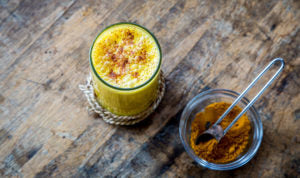
This year’s theme is: STOP for asthma.
S (symptom evaluation), T (test response), O (observe and assess), P (proceed to adjust treatment). To diagnose any disease, ayurveda advocates the use of a similar approach. Identifying symptoms, understanding the root cause and then proceeding to treating the body as a whole.
In Ayurveda, the root cause of asthma is traced back to an imbalance or accumulation of kapha dosha. in the form of mucus in the pathways of air in the body. The restriction in the movement of air also causes an imbalance of vata dosha. This is what leads to asthma symptoms which include: difficulty in breathing, cough, chest pain, wheezing and shortness of breath.
Some of the reasons of accumulation of Kapha in air passages could be:
Consuming Kapha aggravating food items
By nature Kapha Dosha is heavy, cool, oily and smooth, so if you are prone to symptoms of asthma, it is best to tweak your diet with food that neutralizes these qualities instead of aggravating it:
Take food that is light (fruits, vegetables and green or black tea), instead food that is heavy (fried foods, lots of bread, dairy, nuts and cakes)
Take food that is dry (beans, dried fruits, rice cakes), as opposed to food with a lot of water content (melons, yogurt, cheese)
Take food that is warm (spicy, warm beverages, cooked meals) instead of cold food (salads, sandwiches and ice cold beverages)
Consume roughage (broccoli, cabbage, cauliflower, beans) instead of smooth food (bananas, cheese, milk)
It is helpful to avoid cold or stale food. It is usually not easy to digest and leads to accumulation of ama (toxins) or mucus, causing blockage in the respiratory channel.
Indigestion
When the digestive system or digestion is weak, the body becomes more susceptible to infections from allergens which trigger diseases. Poor digestion also leads to deposit of ama (mucus) in the lungs and respiratory tract, giving rise to coughing, wheezing and other issues.
A few environmental and bodily reasons that lead to symptoms of an asthma attack include:
Weakening of the lung tissues
Exposure to excessive pollution
Genetic predisposition
Problems caused by lung diseases
Excessive smoking
Along with the right diet and improvements in lifestyle, ayurvedic treatment for asthma include herbal preparations that aid digestion and promote health. Here are a few home remedies that could help prevent or reduce the symptoms of asthma:
Adrak (Ginger) and Mulethi (Licorice)
When it comes to treating any type of inflammation (in this case due to asthma), ginger is one of the most effective herbs. When you feel uneasy due to a cold or cough, or if you experience symptoms of asthma, a cup of ginger tea can help reduce kapha in the airways, making you feel better. Alternatively, another ayurvedic treatment is drinking turmeric milk with a dash of ginger in it. Try our suprabhat chai with mulethi.
Pippali (Long pepper)
Severe cough, indigestion and symptoms of asthma can be prevented and cured with long term use of pippali - long pepper. Our natural cough reliever decoction based syrup, Bronchiofly- An ayurvedic and natural safeguard for our respiratory system is made with herbs such as pippali, kali mirch, mulethi, vasa and others that are beneficial for our respiratory health.
Other tips for protecting yourself from the causes that lead to asthma are:
Stay warm and drink hot herbal beverages.
Cover your nose and mouth when you are in a polluted atmosphere
Take a steam treatment at home whenever you feel irritation in your throat.
Regular body massage with warm sesame oil helps pacify Vata Dosha and softens the Kapha Dosha in the chest.
When you face issues related to the respiratory tract, sour substances, pickles and curd should be strictly avoided, along with cold items like ice-cream, ice cold beverages, etc.

Comments (0)
Back to News